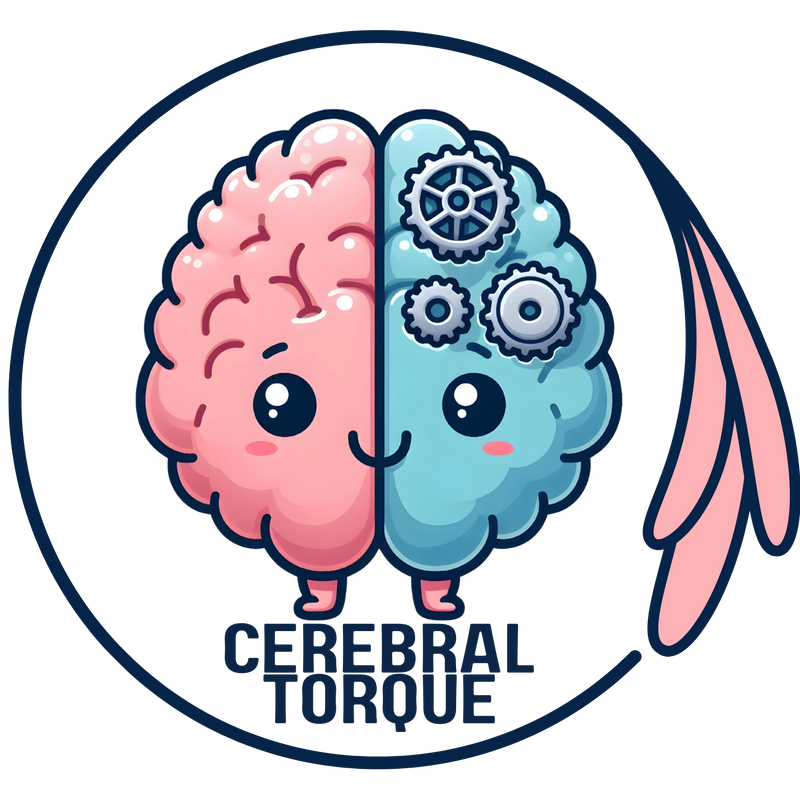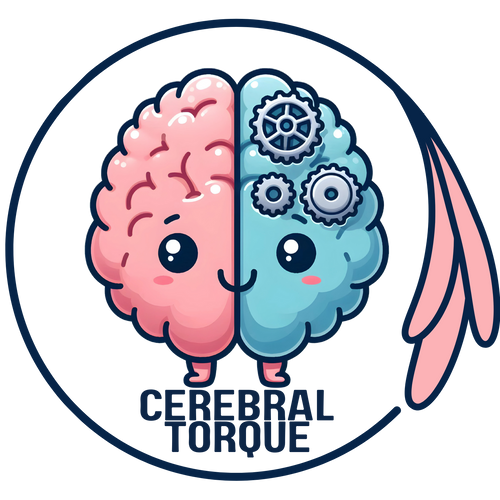The Hidden Connection: Migraine and Hypothyroidism (Overt and Subclinical)
Posted on July 13 2025,
Migraine and Hypothyroidism
Understanding Hypothyroidism
Before diving into the connection with migraine, it's essential to understand what hypothyroidism actually is and why it affects so many people worldwide.
What Is Hypothyroidism?
Definition: Hypothyroidism occurs when your thyroid gland doesn't produce enough thyroid hormones to meet your body's needs
Types: Primary (thyroid gland dysfunction), secondary (pituitary gland issues), and tertiary (hypothalamus problems)
Most Common Cause: Hashimoto's thyroiditis, an autoimmune condition where the immune system attacks the thyroid (primary)
Prevalence: Affects 5% of the population, with women being 10 times more likely to develop it than men
The Thyroid's Role in Your Body
Your thyroid gland, a small butterfly-shaped organ in your neck, produces hormones that control virtually every aspect of your metabolism. These hormones affect your heart rate, body temperature, energy levels, and even brain function. When the thyroid underperforms, it's like your body's engine running on low fuel.
Subclinical vs. Overt Hypothyroidism
There are two main forms of hypothyroidism that matter for migraine patients:
Understanding the Spectrum
Subclinical Hypothyroidism: Elevated thyroid-stimulating hormone (TSH) but normal thyroid hormone levels. Often called "mild" hypothyroidism, but symptoms can still be significant.
Overt Hypothyroidism: Both elevated TSH and low thyroid hormone levels. This is the "classic" form with more obvious symptoms.
Why It Matters: Even subclinical hypothyroidism can significantly impact migraine frequency and severity, making it crucial to test for both forms.
The Hidden Link: What We Now Know
Now that we understand hypothyroidism, here's the new study: A systematic review published in 2025 found a significant bidirectional relationship between migraine and hypothyroidism. This isn't just a statistical coincidence - it's a real, measurable connection that could transform how we approach both conditions.
"This research fundamentally changes how we should approach patients with migraine and thyroid dysfunction. We can no longer treat these as isolated conditions." - Cerebral Torque
Understanding the Bidirectional Relationship
The relationship between migraine and hypothyroidism works both ways. People with existing headache disorders have a 21% increased risk of developing hypothyroidism, but for those specifically with migraine, that risk jumps to 41%.
Why This Connection Exists
Shared Biological Mechanisms
Hormonal Pathways: Both conditions share common hormonal disruptions, particularly affecting serotonin and pain perception pathways
Autoimmune Connection: Many cases of hypothyroidism are autoimmune (Hashimoto's thyroiditis), and migraine shows similar inflammatory patterns
Gender Factor: Both conditions disproportionately affect women, suggesting hormonal influences
Genetic Predisposition: Recent genetic studies show shared risk factors between the conditions
The Clinical Evidence
Multiple studies have now documented this connection across different populations and age groups, from children to adults. The evidence is especially strong for subclinical hypothyroidism - the mild form where blood tests show elevated thyroid-stimulating hormone (TSH) but normal thyroid hormone levels.
Research Findings
Prevalence Studies: Show 30.8% of migraine patients have either subclinical or overt hypothyroidism compared to only 10% of controls
Longitudinal Research: Demonstrates that headache disorders can precede the development of hypothyroidism by years
Treatment Studies: Prove that treating thyroid dysfunction improves migraine symptoms in most patients
Pediatric Evidence: Shows the connection exists even in children, with 24% of young migraine patients having subclinical hypothyroidism
Levothyroxine: A Common Hypothyroid Treatment
Perhaps the most interesting discovery is how effectively treating hypothyroidism can improve migraine symptoms. Multiple clinical trials have now demonstrated significant benefits when thyroid dysfunction is properly addressed.
Clinical Trial Results
Landmark Study Results (2023)
A randomized controlled trial of 87 patients with migraine and subclinical hypothyroidism showed improvements with low-dose levothyroxine treatment:
- Headache Frequency: Significant decrease at 3 months compared to placebo
- Pain Severity: Marked reduction in migraine intensity
- MIDAS Scores: Improved disability scores and quality of life measures
- Duration: Shorter-lasting migraine episodes
Pediatric Success
The benefits extend to children as well. In pediatric studies, levothyroxine therapy reduced migraine frequency from an average of 14.75 episodes per month to just 5.39 episodes - a 65% reduction. Severity scores also dropped significantly from 7.2 to 4.05 on a 10-point scale.
Treatment Protocol
Standard Approach: Low-dose levothyroxine (typically 50-100 mcg daily) for patients with subclinical hypothyroidism and migraine
Monitoring: Regular thyroid function tests to ensure optimal dosing
Timeline: Most patients see improvement within 2-3 months of treatment
Success Rate: 70-78% of patients experience significant headache reduction
How Levothyroxine Helps
Levothyroxine, the synthetic form of thyroid hormone, works by:
- Restoring normal thyroid hormone levels, which affects pain pathways
- Improving serotonin function, a key neurotransmitter in migraine
- Reducing inflammation that may contribute to headache susceptibility
- Normalizing metabolic processes that influence neurological function
While levothyroxine can be highly effective, it's crucial to work with healthcare providers for proper dosing. Too much or too little thyroid hormone can worsen headaches. Regular monitoring ensures optimal treatment outcomes.
Clinical Implications and Future Directions
How this research should change clinical practice and what it means for patients with either condition.
| Clinical Area | Current Practice | Evidence-Based Recommendations | Expected Outcomes |
|---|---|---|---|
| Migraine Assessment |
|
Routine Thyroid Screening
|
30% of patients may have undiagnosed thyroid dysfunction |
| Hypothyroidism Management |
|
Proactive Treatment Approach
|
78% headache improvement rate with treatment |
| Treatment Integration |
|
Integrated Care Model
|
Improved patient outcomes and reduced healthcare utilization |
| Patient Education |
|
Comprehensive Education
|
Better treatment compliance and long-term outcomes |
What This Means for Patients
For Migraine Patients
Action Steps
- Request Thyroid Testing: Ask your doctor about checking TSH and free T4 levels, especially if you have chronic migraine
- Track Your Symptoms: Keep a detailed headache diary that includes energy levels, weight changes, and other potential thyroid symptoms
- Consider Treatment: If you have subclinical hypothyroidism, discuss the potential benefits of levothyroxine therapy
- Monitor Progress: Track headache frequency and severity during thyroid treatment
For Hypothyroidism Patients
Headache Awareness
- Report Headaches: Tell your doctor about any new or worsening headache patterns
- Optimize Treatment: Ensure your thyroid levels are well-controlled, as this may prevent migraine development
- Seek Specialist Care: Consider seeing a headache specialist if you develop migraine symptoms
- Medication Timing: Take levothyroxine consistently and as prescribed for best results
Key Questions to Ask Your Doctor
If you have migraine: "Should I be tested for thyroid dysfunction, and how often should this be monitored?"
If you have hypothyroidism: "Could my thyroid condition be related to my headaches, and would optimizing my treatment help?"
The Pediatric Perspective
For parents of children with frequent headaches, this research suggests that thyroid screening should be considered, especially if the child experiences chronic or severe migraine patterns. The studies show that 24% of children with migraine have subclinical hypothyroidism, and treatment can be highly effective.
For many patients, addressing thyroid dysfunction could be the missing piece in their migraine management puzzle.
This article is for educational purposes based on current research. Always consult with qualified healthcare providers about your specific medical conditions and treatment options. Do not make changes to your medications or treatment plan without professional medical guidance.
Wed, Jan 14, 26
New Emergency Department Migraine Treatment Guidelines
The American Headache Society (AHS) has released its 2025 guideline update for the acute treatment of migraine in adults presenting to the emergency department. This update, published in Headache in...
Read MoreSun, Jan 04, 26
Long-Term Safety of Anti-CGRP Monoclonal Antibodies
A comprehensive meta-analysis of over 4,300 patients reveals that erenumab, galcanezumab, fremanezumab, and eptinezumab maintain good tolerability beyond 12 months. Only 3% of patients stopped treatment due to adverse events,...
Read MoreThu, Jan 01, 26
Alternate Nostril Breathing Protocol for Migraine
Alternate nostril breathing is a simple yogic technique that's showing real promise for migraine prevention. Unlike acute treatments, this practice builds nervous system resilience over time - making attacks less...
Read More


